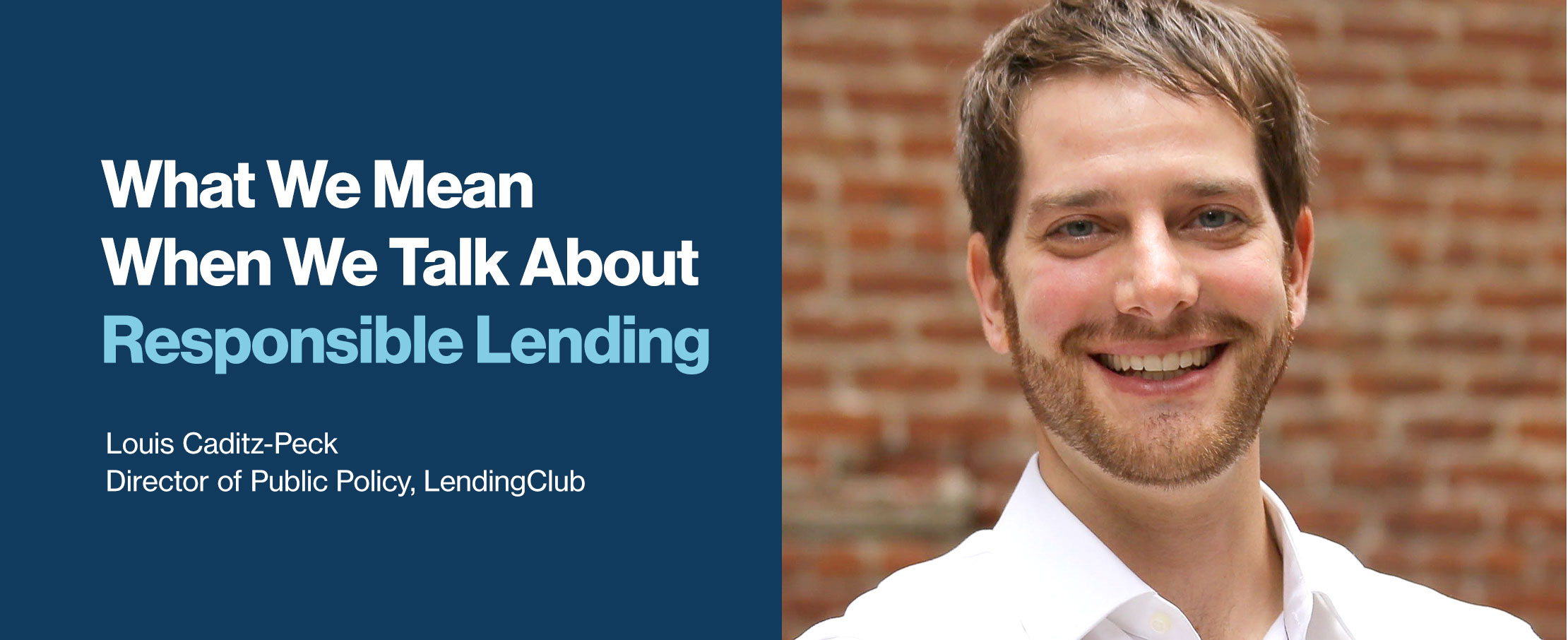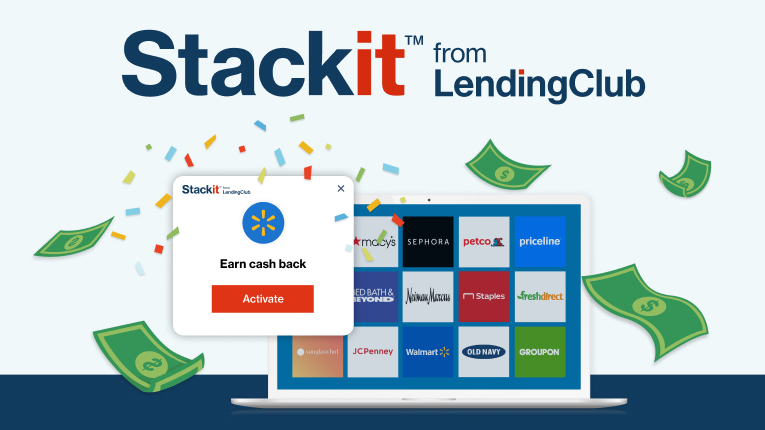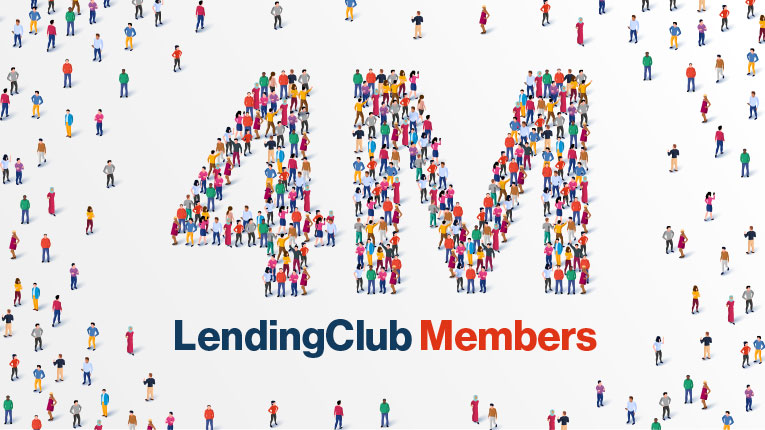What We Mean When We Talk About Responsible Lending

Responsible lending is not optional.
Why would the largest U.S. credit marketplace work with small business advocates and the nonprofit sector to pass new regulations on lending? Oftentimes we share a common goal—a level playing field of responsible practices that fosters healthy competition, innovation, and regulatory stability.
Today, small businesses face a rise of new, irresponsible lending practices some of which Bloomberg Businessweek described as “chewing up small businesses across America.” Research by the Federal Reserve and our partner Opportunity Fund has shown that small businesses are paying rates as high as 350% APR on their loans. But they often don’t realize it because those APRs are never transparently disclosed. The Truth in Lending Act, which requires transparency in consumer lending, doesn’t apply to loans made to small businesses!
This lack of transparency can be devastating for a borrower. But it’s also harmful for marketplace lending and its investors. That’s why we’ve been leading a charge to clean up bad industry practices. I recently shared my perspective on Legislative Changes Coming for Small Business Lending and the implications for the marketplace lending industry. Here are the key takeaways.
1. The Small Business Borrowers’ Bill of Rights
In 2015, LendingClub saw that a lack of price transparency in the market was harming the small businesses we worked with and creating concern about the right way to regulate fintech.
Some were expressing a view that online lending was irresponsible, and traditional, offline, lending was good. Others argued the opposite—traditional lending was failing to meet the need for access to capital, thus online lending was good.
LendingClub set out to share a simple perspective: responsible lending is good, and irresponsible lending is not, whether online or off. But no one had clearly described what really distinguishes responsible small business lending.
We gathered with other responsible fintech companies and nonprofits that shared our values to form the Responsible Business Lending Coalition, facilitated by the Aspen Institute. And in late 2015 we launched the Small Business Borrowers’ Bill of Rights. It represents a nonprofit and industry consensus on six fundamental rights that business owners seeking financing deserve, and the business practices that lenders and lending marketplaces should follow.
So far, more than 100 companies and nonprofits, ranging from other fintechs to civil rights groups like the National Urban League and the U.S. Hispanic Chamber of Commerce, have signed on to the Small Business Borrowers’ Bill of Rights.
2. Changes in small business lending legislation
Last year, a California senator, inspired by our Small Business Borrowers’ Bill of Rights, proposed SB-1235, which became the first law in the country to require that lenders be transparent with small business applicants about the price of their financing! To pass the bill, LendingClub spearheaded a coalition that brought together over 500 fintechs, think tanks, advocacy groups, and non-profits. While it may be a year or more before the law takes effect, our coalition recently shared a “Community Heroes” award for this work.
Meanwhile, momentum is building in other states and at the federal level. In May, HR-370, a bipartisan resolution based on the Small Business Borrowers’ Bill of Rights, was introduced in Congress.
3. Implications for marketplace lending
As price transparency becomes required in small business financing, we expect to see better and more affordable products. Today, we don’t have an efficient market.1 Small businesses can’t compare the costs of different products. Without price disclosure, people can’t comparison shop. And so, instead of a market where competition is leading providers to outdo each other with better and better products and better rates, parts of the market are collecting economic rent on their customers’ lack of information.
APR is the only established metric that allows apples-to-apples comparisons of cost across products of different amounts and term lengths. New transparency laws also represent increasing regulatory stability for responsible online lending. We have heard from regulators that some of the practices happening in small business lending create risk for the whole fintech industry. As Philadelphia Federal Reserve Bank President Patrick Harker stated, “My message to the fintech companies is get involved with the regulators early and often, to start forming what makes sense to protect the people who want to do it right. That can protect …this sphere of innovation that you all need, and we want…If there’s too many bad actors there, that can stifle that innovation.”
We’ve had the opportunity as leaders in the industry to try to respond to this recognition that there needs to be a more thoughtful and robust small business borrower protection framework.
The bottom line
Fintech and marketplace lending are developing better products—lower cost auto loans2 and personal credit, faster payments—and fostering greater financial inclusion.3 Innovation requires the ability to try new things. And it also requires a level competitive playing field and transparency, so that the best solutions can be recognized and rise to the top. That’s why we’ve worked with our nonprofit sector partners to advance new transparency and responsible lending laws.
Louis Caditz-Peck is Director of Public Policy at LendingClub, where he works with regulators, lawmakers, advocates and think tanks as well as leading internal initiatives aimed at fostering innovation in technology, lowering the cost of credit for borrowers, and increasing access to responsible lending.
1. Source: Jessica Milano, Progressive Policy Institute, “Shining a Light on Small Business Credit: Promoting a Transparent Marketplace,” November 2017.2. Source: LendingClub. Based on average customer interest savings of $3,235 from October 2016 to June 2018. Your actual savings may be different. A representative example of payment terms are as follows: an amount financed of $18,000 with an APR of 8.20% and a term of 60 months would have a monthly payment of $366.70.3. Source: United States Government Accountability Office, Financial Technology,"Additional Steps by Regulators Could Better Protect Consumers and Aid Regulatory Oversight,” March 2018.
You May Also Like










